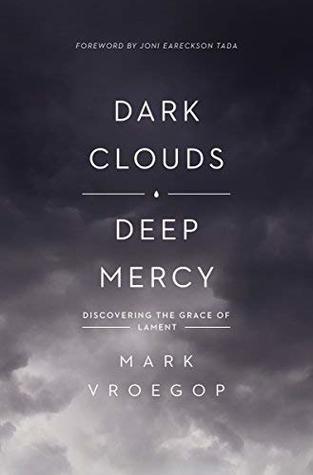More on this book
Community
Kindle Notes & Highlights
by
Mark Vroegop
Read between
July 9 - July 22, 2023
sad situations sometimes don’t get better. Problems don’t always get solved. Conflicts don’t get fixed. Children die, couples divorce, and untimely deaths rock our world and shake our faith.
When we are in pain, God feels the sting in his chest.
Walking through sorrow without understanding and embracing the God-given song of lament can stunt the grieving process.
Lament is how you live between the poles of a hard life and trusting in God’s sovereignty.
Lament is the honest cry of a hurting heart wrestling with the paradox of pain and the promise of God’s goodness.
lament stands in the gap between pain and promise.
Lament is a prayer in pain that leads to trust.
lament is a path to praise as we are led through our brokenness and disappointment.
To pray in pain, even with its messy struggle and tough questions, is an act of faith where we open up our hearts to God.
Grief is not tame.
Lament is a prayer that leads us through personal sorrow and difficult questions into truth that anchors our soul.
the character of God—his sovereignty, goodness, and love—creates a tension when we face painful circumstances.
Lament is how we learn to live between the poles of a hard life and God’s goodness.
It is an opportunity to remind our hearts about God’s faithfulness in the past, especially when the immediate events of life are overwhelmingly negative. While we’re still in pain, lamen...
This highlight has been truncated due to consecutive passage length restrictions.
Through godly complaint we are able to express our disappointment and move toward a resolution.
The longer we live, the more pain we see.
God could intervene, but there are times—many times—when he chooses not to. That’s the tension of complaint.
I don’t think there is ever a place to be angry with God. However, I do think it’s permissible to ask pain-filled questions as long as you’re coming in humility.
sorrow doesn’t have to yield before we ask God for help. Part of the grace of lament is the way it invites us to pray boldly even when we are bruised badly.
Pain has a way of awakening us to our need for God’s help. It shines a spotlight on our powerlessness to control everything.
Asking God to remember connects our present struggle to God’s historic faithfulness.
Suffering refines what we trust in and how we talk about it. Pain can bring clarity. Loss affirms trust.
Trust looks like talking to God, sharing our complaints, seeking God’s help, and then recommitting ourselves to believe in who God is and what he has done—even as the trial continues.
Trust is believing what you know to be true even though the facts of suffering might call that belief into question.
When we are battling falsehoods in our thinking, sometimes singing has the power to convince our emotions to change.
Lament is how you live between a hard life and God’s promises. It is how we learn to sing and worship when suffering comes our way.
The heart of the wise is in the house of mourning. Ecclesiastes 7:4
Suffering—at every level—is an opportunity to learn. However, we must be willing to listen.
Life is full of vexing questions related to God’s purposes. Pain often highlights perplexing paradoxes.
A broken world will bring its share of grief, but it can also bring wisdom if we are willing to slow down, listen, and learn.
All lament and suffering have their roots in the fallen state of the world. Sorrow and pain owe their beginning to rebellion against God’s reign.
you live through suffering by what you believe, not by what you see or feel.
God supplies the mercy and grace we need every day. We endure because divine mercy is never exhausted.
waiting is one of the greatest applications of the Christian faith. You are putting your trust in God, placing your hope in him, and expressing confidence that he is in control.
Waiting puts us in an uncomfortable place where we’re out of control of our lives.
For the Lord will not cast off forever, but, though he cause grief, he will have compassion according to the abundance of his steadfast love.
there are loving purposes behind every tear. You just can’t see what they are yet. You don’t know the whole story of what God is doing.
Seasons of uncertainty and loss reveal the vanity of putting our ultimate hope in anyone but God.
Treating other people or ourselves like saviors is a subtle form of idolatry because our trust should rest in God alone.
“Remember” is a request for God to intervene based on his love and promises. It is a call for God to act.
restoration doesn’t come to those who live in denial.
Lament affirms God’s sovereignty when dark clouds linger.
We are able to vocalize the tension of our suffering and God’s sovereignty.
laments help us find the balance between an appropriate desire for justice and the command to be merciful while having a forgiving spirit.
A crowd can be a lonely place when your heart is heavy.
in the name of providing comfort, our funeral services are often marked by a subtle avoidance of talking about pain.
Death is the Christian’s enemy (1 Cor. 15:26). It vividly displays the brokenness of the world.
Lament helps us embrace two truths at the same time: hard is hard; hard is not bad.
Believers in Jesus are called to walk the path between earthly brokenness and heavenly restoration.


